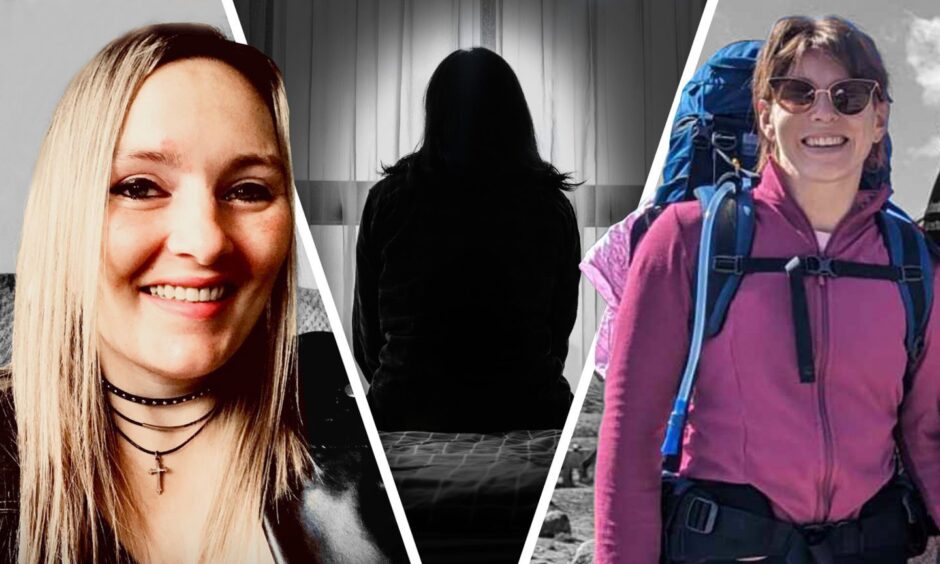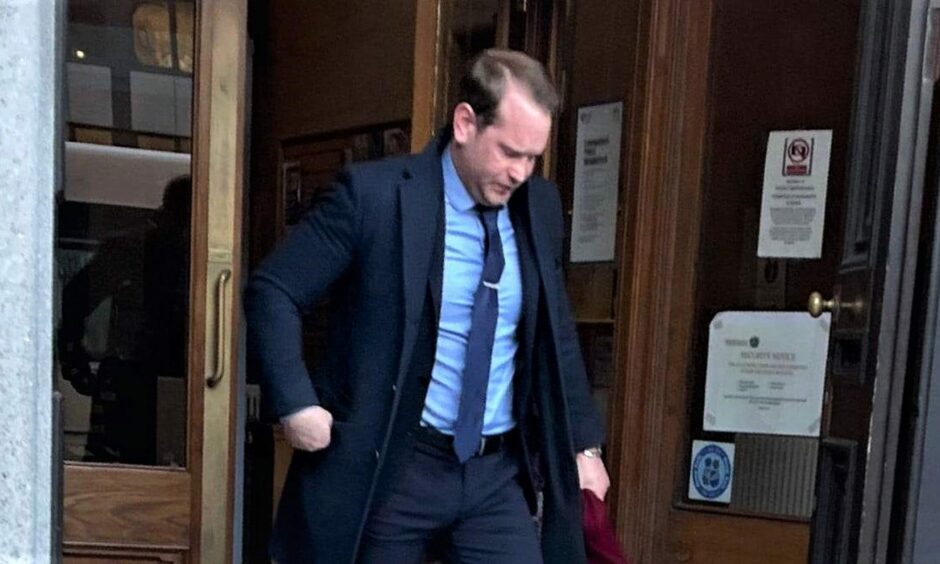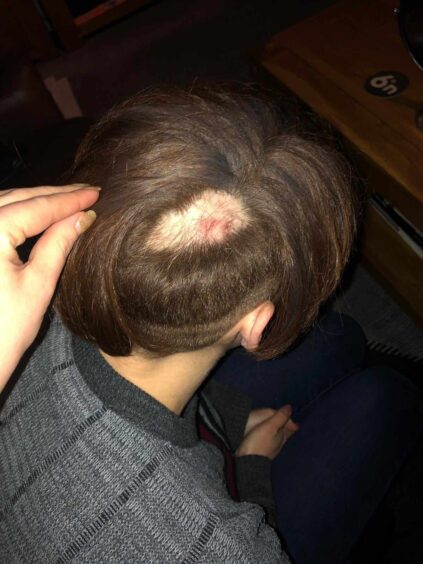
“I’ve had to rebuild myself from scratch,” Lorna Buchanan said, speaking about her long road to recovery following abuse at the hands of her former partner.
After she underwent a terrifying ordeal, Lorna now believes she is starting to see her hard work bear fruit – and part of that metamorphosis includes her vigorous insistence that she only be referred to as a survivor.
She no longer sees herself as a victim of domestic abuse.
“I prefer it because he no longer holds any power over me,” she said of her abuser and former partner, Jody Bruce.
Labelled a “danger to women”, Bruce, 45, crept into Lorna’s home when she wasn’t there, removed a knife from the kitchen and waited for her to return.
She found him sitting in a chair with the knife in open view when she entered her home.
The incident, which occurred in 2021, severely impacted her mental health and caused her to abandon her home of 12 years.
She said the knowledge that her abuser is now behind bars and made subject to a five-year non-harassment order following his release allows her to feel a degree of protection.
“I no longer fear him,” she stated defiantly.
Lorna, 36, is clear that it was her hope that reporting Bruce to the police would improve safety for all women, not just her.
“I didn’t just come forward to protect myself, I wanted to protect the next woman who came along,” she said.
“I didn’t want another woman to go through what I went through.”
Woman had her hair ripped out
Mattison May, 33, regained consciousness on a floor with her hair ripped out when her then-partner assaulted her in early 2019.
She’d moved to Aberdeen from Australia for work in the oil and gas sector but soon found herself trapped in a relationship with Myles Ridyard.
Nothing would prepare her for what was about to happen to her.
Following a night out, Mattison was brutally assaulted by Ridyard.
During the attack Ridyard seized her by the body and dragged her through a door into the hallway before slamming the door.
That caused Mattison’s hair to become trapped in the now-closed door and large chunk was ripped out as she fell forward.
“The next thing I remember is waking up on the floor and he was standing in the entryway of the door and I started to try to stand up,” she said.
“I was yelling and screaming at him. He then threw me to the ground.
“I didn’t even know that my hair had been ripped out until much later.”
Mattison fled the property and managed to call police.
She was left with a 6cm by 3cm bald patch on her head as a result of the attack, alongside 2cm bruise on her left eye, swelling around the jaw and bruising on her right eyelid and nose.
Mattison left the UK the following year and now lives happily with her new partner Tristan in Brisbane.
Yet it’s the long-lasting impact of these terrifying assaults that never leaves the women who experience them.
Asked about how her life was affected following her experience, Mattison was candid in her response: “It makes you insecure in a way I didn’t even know was possible, in terms of being able to trust your judgement of others and how to look after yourself.
“It puts you in this really hard position to form new relationships or have trust in yourself and others.”
More than two years on from her frightening experience, Lorna Buchanan is unflinchingly honest about the impact her abuser had on her.
“To be honest, I ended up having a complete mental breakdown,” she said, while also paying tribute to those who helped her during her recovery.
“My friends and family rallied around me and supported me – even though they told me a million times to leave him. I kept going back because he told me he would change,” she said.
“Eventually, you get to the point where you just can’t take anymore. I have had to rebuild myself from scratch.”
That’s the one thing Lorna says she wants others in her situation to remember: that there is help out there if you need it.
“You just need to reach out. Find the strength within yourself to reach out because you’re worth more. Nobody deserves to be abused or beaten up. Or even emotionally abused – both are crippling.”
Mattison agrees completely with that advice, adding: “There were so many red flags in my situation. Report everything. Report everything and anything that happens to you.”
‘We applaud the courage of the survivors in this story’
Dr Marsha Scott, chief executive of Scottish Women’s Aid, said: “Women affected by domestic abuse do a complicated calculation of risk and benefit when considering whether to call the police. And we know that most do not call.
“They may be worried that the abuser will exploit a child protection enquiry, that police will not believe them, that their abuser will kill them.
“Calling the police requires a higher degree of confidence in the police, in social workers, in courts and sheriffs.
“The reality is that sometimes courage involves finding another solution than reporting to police or others in the system, given the dangers to children and their mothers.
“We applaud the courage of the survivors in this story who make extraordinary personal sacrifices ‘to protect the next woman who came along’.
“These are the stories that change the systems and the people responsible for them.”
For anyone reading this who would like more information about domestic abuse, about services, about what is likely to happen if they call the police, Scotland’s Domestic Abuse and Forced Marriage Helpline operates 24/7 on 0800 027 1234.


